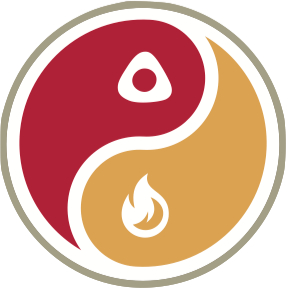Being, Having, and Doing: The Metaphysics of Disease
This is a copy of an article I wrote for Highbrow Paleo in 2011. I have not edited it.
Several years ago, I had an acquaintance who had previously been diagnosed with diabetes. He began a low carb diet, against the advice of his doctor, (this was in the dark 90′s), and over a period of time his symptoms abated, until one day his doctor announced that he no longer had diabetes (though in a bizarre, but perhaps common feat of cognitive dissonance, she could not help but advise him that he “really should eat more carbs”). Of course, my friend hadn’t actually stopped being a diabetic. If he were to have started eating carbs again, as recommended, he would quickly have returned to his diabetic state. What it means to “be” a diabetic is to have the susceptibility to manifest diabetes under the right, or perhaps I should say wrong, circumstances.
We all have weaknesses, to a greater or lesser extent. We all have our own special ways in which our bodies break down in response to a poor environment. For some diseases, we call this “being”. We “are” diabetic, epileptic, alcoholic, schizophrenic. For some reason, we identify less with other diseases. A person merely “has” cancer, heart disease, Alzheimer’s, or MS, even though these are not considered less permanent conditions once identified, even if they can go into remission. It does seem somewhat arbitrary that a person who was theretofore “normal” suddenly becomes or acquires a disease that they then are or have for the rest of their lives regardless of whether the disease continues to manifest. There may be a sense in which we are all diabetic, for example, even never having had symptoms. We all have the potential to some degree, no matter how small, and just because the degree is not yet known, it doesn’t make it not so.
In any case, what truly matters to a person who is or has or happens to know they have a genetic predisposition to such a condition, is whether or not their body is doing that which characterizes the disease. It is for this reason that one would seek to optimize their environment: to prevent themselves from “doing” a disease state. The Paleo diet and lifestyle is conceived with this in mind. It is reasoned both from an evolutionary standpoint: eat only that kind of food to which the body is well-adapted; and from a clinical perspective: do not eat foods which tend to cause disease. Without seeking to re-enact the environment in which we evolved — an impossible, and not particularly desirable goal (civilization does have some benefits) — one attempts to create a metabolic environment which is maximally healthful, and to which we do not tend to respond by breaking down in our various ways.
For my part, I am a fat person living in a reasonably fit body. (Fat is one of those rare states that we treat linguistically as transient, even though the obese, pre-obese, and post-obese have a signature metabolic profile such that a formerly fat person is not the same as a naturally thin one. This contributes to the blaming of fat people for their condition that would never be tolerated for other diseases.) I have Bipolar II, but for some years now my moods have no longer been disordered, and I use no medication. I wasn’t able to achieve this with a diet that is “just” Paleo, however, or even just low in carbohydrate. My body continues to do fat and bipolar unless I eat nothing but meat (though coffee and tea are mercifully tolerated). No doubt, there are people for whom even this is not enough, and others for whom it is not necessary. My idiosyncratic susceptibilities are simply deeper than most. However, I consider it likely that a great many people will do without disease simply by following a Paleo or low carb diet, or both. If nothing else, they are starting points that make sense for anyone wishing to give their body the best chance to manifest wholeness and well-being, whatever its underlying constitution may be.
